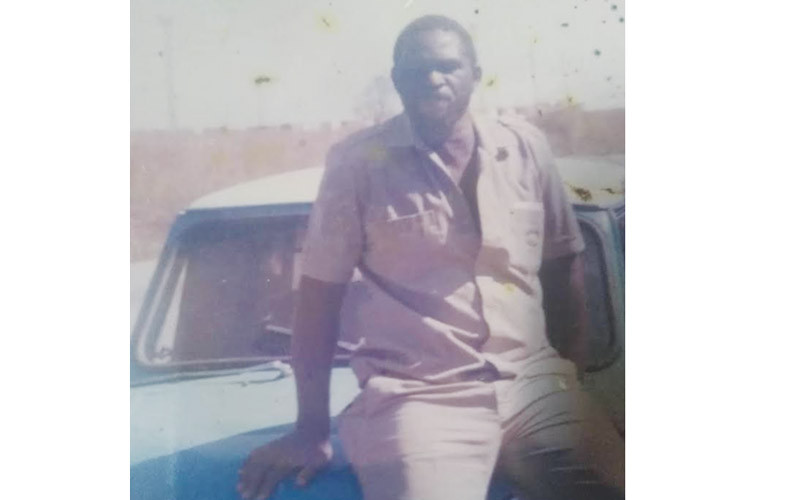
In the 1980s and 1990s, having a television set was a big privilege for many Zimbabwean families and this situation made it difficult for most people to access film and TV programmes as the few available public screening spaces were expensive and out of reach for many.
Despite Zimbabwe having been one of the first two countries in Africa to have its own televisions station it was a symbol of status for one to be able to afford a television set.
The struggle was so real for many film or TV enthusiasts with some having to peep through the windows to catch a glimpse of their favourite TV programme or movie.
Today, the digital revolution, the internet, and piracy have changed the film screening landscape in Zimbabwe.
Before the digital revolution, the likes of Mr Mandebvu, born Peter Apureni Mugodlani, the man behind the popular Mandebvu Films, helped to transform the space through provision of affordable film-screenings in communities, schools and towns.
NewsDay Weekender unmasks and celebrates the unsung legend of the film industry in Zimbabwe — the man who made it possible for many including filmmakers, actors, and entertainers to see the world on the silver screen.
The struggle to watch TV
Not so long ago, most people and families, especially those living in poor high-density neighbourhoods, used to converge at one well-to-do house, to watch their favourite TV programme or movie.
- Worthless Zim dollar notes clog banks
- Building solid markets for Zim artisanal miners
- Covid-19 patients pay price after officials bungle contract
- The politics of control in Zim’s Covid-19 times
Keep Reading
In the villages, there were a few shops and bottlestores that had a television set and the whole community would gather around a small black and white screen.
In some areas, getting allowed to watch TV came with a string of tight rules, for instance, sitting on the floor, remaining quiet throughout the entire programme, washing your feet first before admission, watching from outside through the window and some other unthinkable demands.
Cities like Harare, Mutare, Gweru, Bulawayo had film halls and drive-in cinemas that were still inaccessible to many who could not afford.
The digital revolution
Owing to a myriad of factors such as the economy, the digital revolution, and piracy, a lot of the old film houses in Zimbabwe have since been re-purposed into churches, offices, government buildings, shopping complexes, and other uses.
The drive-in cinema centres have turned into white elephants.
The story of Mandebvu Films
The story of Mandebvu Films and Mandebvu’s transformative role in Zimbabwe is literally undocumented and remains uncelebrated.
There is even a song by dancehall singer Winky D where he sings, “Kumafirimu, Mandebvu ndiye munhu mukuru”. In films, Mandebvu is the big man.
Most people who grew up in the 1990s will remember the name Mandebvu Films from posters or having watched films at school or a community hall.
Mandebvu was one man who transformed the space through provision of affordable film screenings in communities, schools and townships.
The name and trademark name Mandebvu came about because he loved keeping a long beard.
Born in a family of 10 in Chinhoyi, he worked at Lobels Bakery as a salesman and retired in 1987.
His story in the film and entertainment industry began sometime in 1983 after a friend, G Crew, introduced him to the showbiz industry and this was the beginning of Mandebvu Disco.
His Chinese friend identified as Chung had 16mm projectors at his home that he used to watch with his family and Mandebvu told Chung that he wanted to try showing films in the “ghetto” high-density communities since the cinemas in town were expensive and out of reach for many.
Through this film-screening idea, Mandebvu wanted to supplement his income, but little did he know that this was to make him a groundbreaking legend in the local film industry.
He went on to hire more films at Liberty Films (a cinema that used to operate down-town Harare) owned by Morah brothers of Indian origin and at Libra Films, who owned the Kines.
His business flourished so fast and would hold three shows at different venues at the same time.
Mandebvu Films grew so popular in the 1990s to the extent of attracting advertisers from different products from local companies such as Unilever, then known as Lever Brothers.
It can be imagined how he understood business, marketing and utilised the power of social capital long before social media was developed.
This speaks to a great entrepreneur whose ability to see opportunity and create business was ahead of his time.
Mandebvu traversed the whole of Zimbabwe with his silver screen and projector showing films sparking the imagination of many Zimbabweans.
The most popular films from his catalogue were the kung fu movies featuring Bruce Lee, the action-packed Arnold Schwarzenegger and Jean-Claude Van-Damme films, among many others. These were the all-time hits.
With his business employing six people, Mandebvu Films worked together with two of his young brothers John, who sadly passed on last year, and Kennedy, who is still actively involved in the entertainment industry.
Kenny still does film screenings and before the COVID-19 lockdown, he worked with the Harare City Council using their halls like in Mbare, but sadly when the COVID-19 restrictions were relaxed, the rentals were hiked, making it hard for him to operate.
Sadly, Mandebvu passed on in 2008 and left behind a wife and 10 children.
May his soul rest in peace!
Kenny reckons that his brother remains an icon and was a pillar in the family who will forever be remembered and loved.








